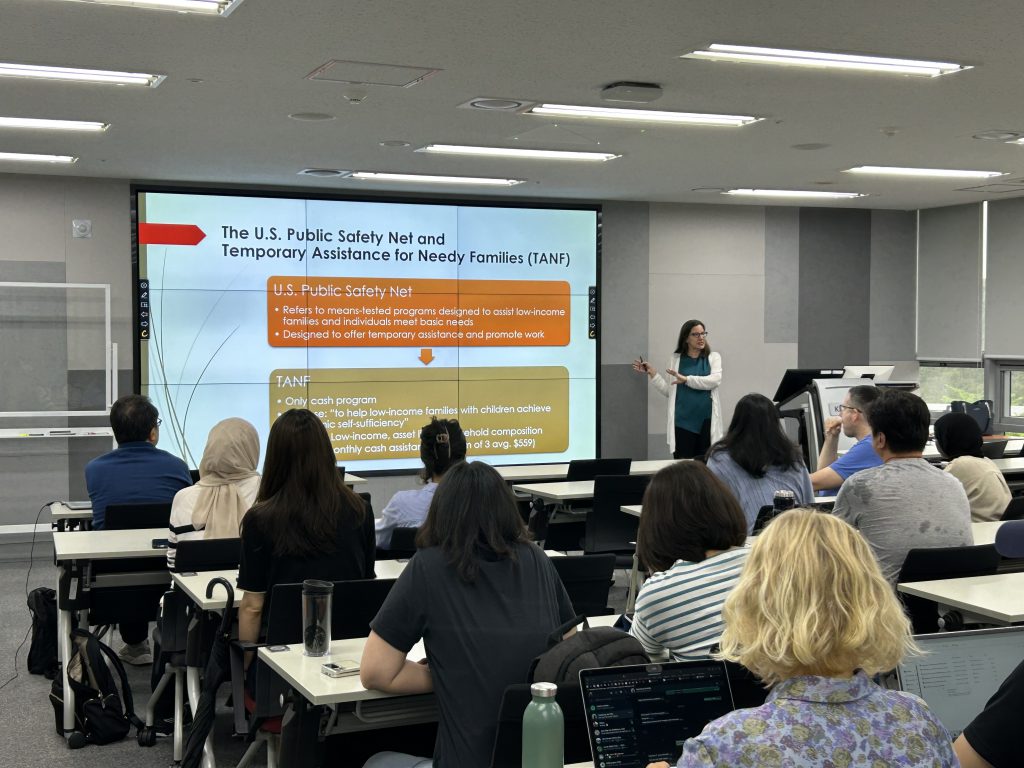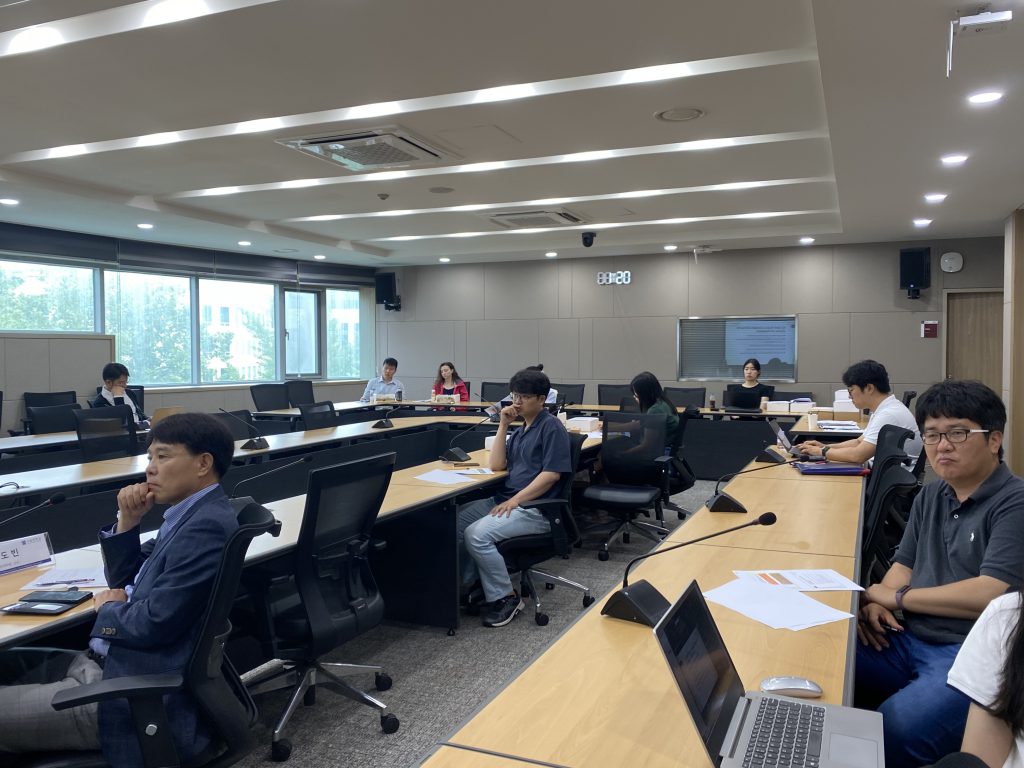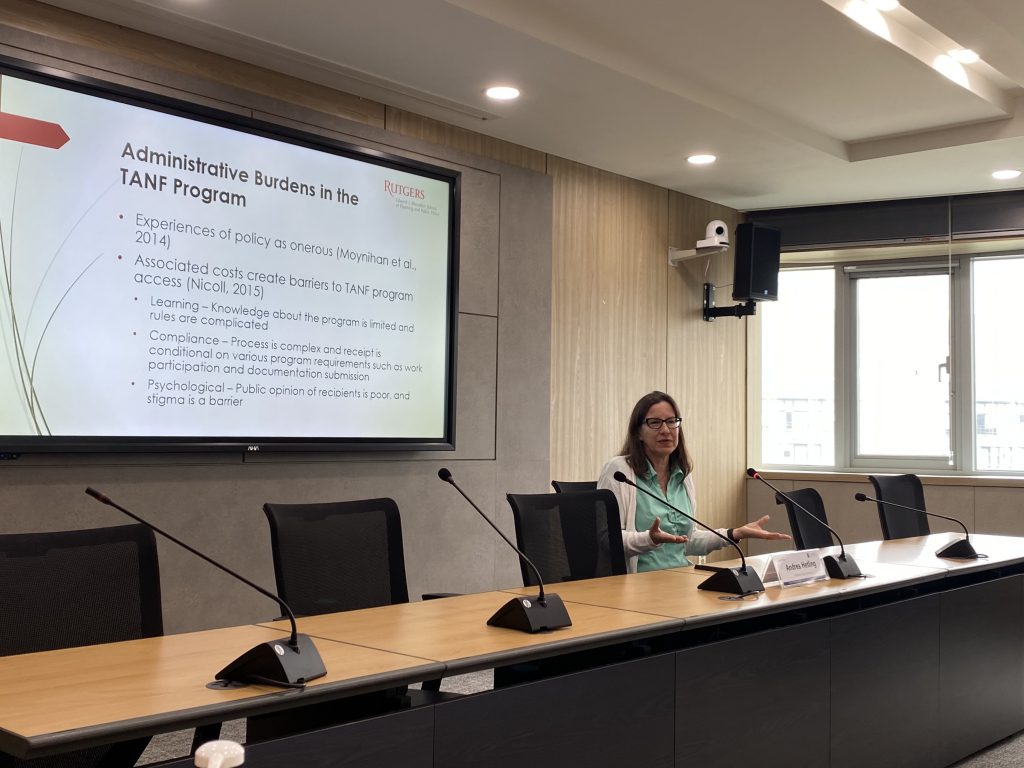Dr. Andrea Hetling traveled to Korea this summer to present her research at two of the country’s leading universities. Her first stop was Seoul National University. SNU’s Graduate School of Public Administration invited Dr. Hetling to present as part of their initiative to bring global scholars to campus to share new directions in research. She then visited the Korea Development Institute to present her research and meet with graduate students interested in studying at the Bloustein School. The title of her presentation at both institutions was “Discretion in Street-Level Organizations: Welfare Caseworkers and the COVID-19 Pandemic.”
Discretion in Street-Level Organizations: Welfare Caseworkers and the COVID-19 Pandemic
Beginning in the 1980s and 1990s, social welfare policies in many nations increasingly included conditional elements in their program design, particularly relying on work requirements and sanctions. The responsiveness of conditional welfare policies to economic downturns is of concern to scholars focused on the efficacy of such programs as anti-poverty and safety net policies. Moreover, the extent to which such programs rely on frontline discretion raises concerns related to inconsistent and inequitable experiences by applicants and participants. The COVID-19 pandemic in the U.S. serves as a strong case study in understanding how conditional welfare programs function in times of economic stress and how welfare caseworkers respond to such challenges. Focusing on the State of New Jersey as a case study, this presentation provides an overview of the Temporary Assistance for Needy Families (TANF) program in New Jersey, focusing on caseload dynamics during the COVID-19 pandemic. Findings from a statewide survey of TANF caseworkers during the summer of 2021 speak to the impact of the pandemic on occupational self-efficacy and the potential of trauma-informed practices in alleviating stressful conditions on the frontlines of street-level organizations.



